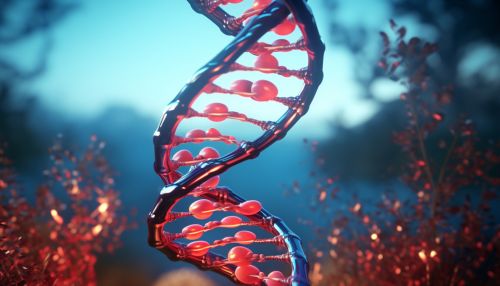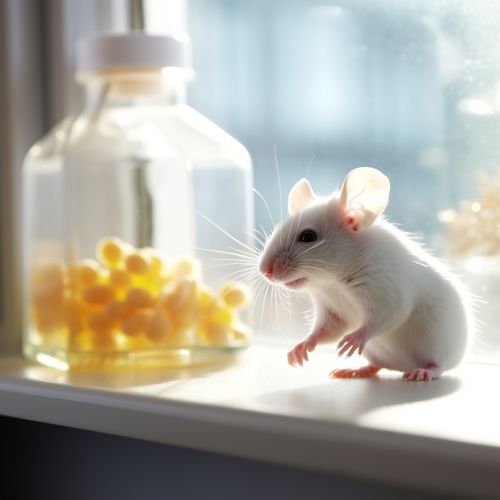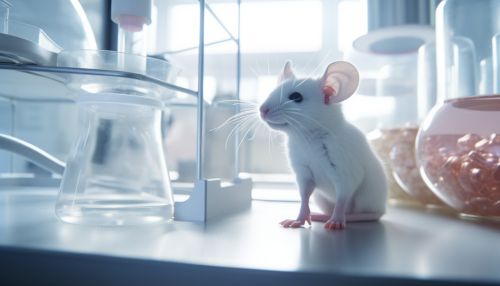The Ethical Implications of Genetic Engineering
Introduction
Genetic engineering, also known as genetic modification, is the direct manipulation of an organism's genomes using biotechnology. It is a set of technologies used to change the genetic makeup of cells, including the transfer of genes within and across species boundaries to produce improved or novel organisms. This article explores the ethical implications of genetic engineering, a topic that has sparked significant debate in the scientific community and society at large.


Understanding Genetic Engineering
Genetic engineering involves the deliberate modification of an organism's genetic structure. This can be achieved through various techniques, such as rDNA technology, gene splicing, and CRISPR-Cas9, among others. These techniques allow scientists to add, remove, or alter genetic material within a cell or organism, leading to desired traits or characteristics.
Ethical Implications of Genetic Engineering
The ethical implications of genetic engineering are vast and multifaceted, touching on issues of human rights, biodiversity, animal welfare, and more. These implications can be broadly divided into three categories: human genetic engineering, animal genetic engineering, and plant genetic engineering.
Human Genetic Engineering
Human genetic engineering refers to the application of genetic engineering techniques to human beings. This can involve altering the genes in human embryos, sperm, or eggs, leading to changes that will be passed on to future generations. This area of genetic engineering raises several ethical questions.


Designer Babies
The concept of "designer babies" refers to the theoretical possibility of using genetic engineering to select specific traits or characteristics for a child before they are born. This could include physical traits, such as height or eye color, as well as non-physical traits, such as intelligence or athleticism. The ethical implications of this are complex and controversial. Some argue that it could lead to a form of 'genetic elitism', where those who can afford to genetically modify their children do so, leading to increased social inequality.
Gene Therapy
Gene therapy is a form of genetic engineering that involves altering the genes within an individual's cells and tissues to treat or prevent disease. While gene therapy holds great promise for treating a range of diseases, it also raises ethical questions. For example, there are concerns about the potential for unforeseen side effects, particularly when the therapy involves making changes to the germ line (cells that are passed on to future generations).
Animal Genetic Engineering
Animal genetic engineering involves the manipulation of an animal's genetic structure to achieve desired traits. This can be used for a variety of purposes, such as improving livestock for agricultural purposes, creating animals with human-like diseases for medical research, or producing genetically modified pets.


Welfare of Genetically Engineered Animals
One of the main ethical concerns surrounding animal genetic engineering is the welfare of the genetically engineered animals. There are concerns that the process of genetic engineering may cause harm or suffering to the animals involved. Additionally, there are questions about the long-term effects of genetic engineering on an animal's health and wellbeing.
Biodiversity and Ecosystem Stability
Another ethical concern is the potential impact of genetically engineered animals on biodiversity and ecosystem stability. There are fears that genetically engineered animals could out-compete wild species, leading to a reduction in biodiversity. Additionally, there are concerns about the potential for genetically engineered animals to disrupt ecosystems, particularly if they are able to interbreed with wild species.
Plant Genetic Engineering
Plant genetic engineering involves the manipulation of plant genes to create plants with desired traits, such as resistance to pests or improved nutritional content. This has been widely used in agriculture to improve crop yields and resistance to pests.


Food Safety and Labeling
One of the main ethical issues surrounding genetically engineered plants is food safety. There are concerns about the potential for genetically engineered foods to cause allergic reactions or other health problems. Additionally, there is debate about whether genetically engineered foods should be labeled as such, allowing consumers to make informed choices about what they eat.
Environmental Impact
Another ethical concern is the potential environmental impact of genetically engineered plants. There are fears that genetically engineered plants could cross-breed with wild plants, leading to a reduction in biodiversity. Additionally, there are concerns about the impact of genetically engineered crops on non-target organisms, such as insects and birds.
Conclusion
The ethical implications of genetic engineering are complex and multifaceted, touching on a wide range of issues. As genetic engineering techniques continue to advance, it is crucial that these ethical implications are carefully considered and addressed.
